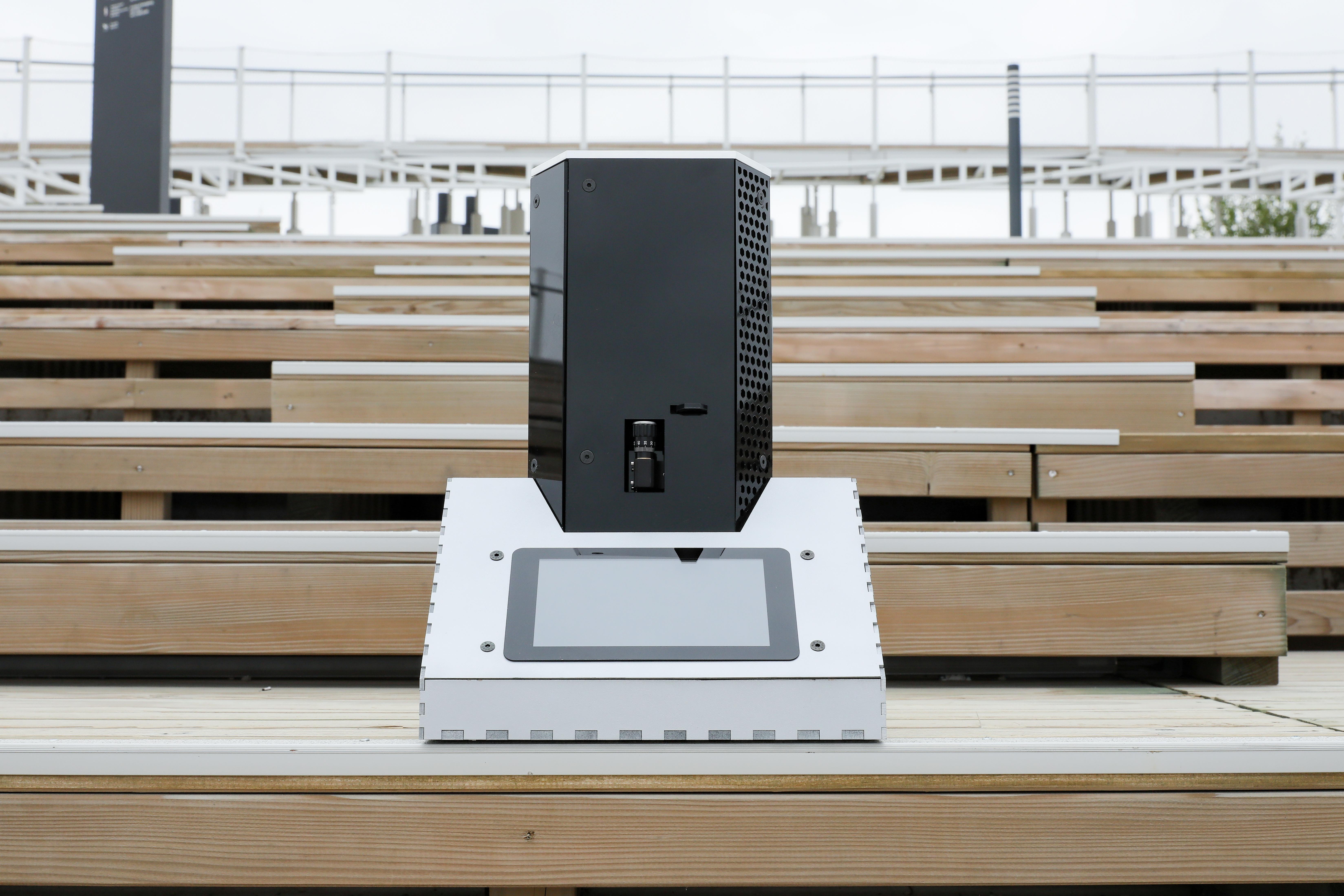
EPFSens team © Alain Herzog/ 2019 EPFL
This Friday, 30 August, a team of EPFL students will take part in the SensUs competition at the Eindhoven University of Technology. This year's challenge is to develop a biosensor that can quickly measure concentrations in patients' blood plasma of adalimumab. The main active ingredient of one of the best-selling drugs in the world, which can have harmful side effects.
Adalimumab is the hard-to-pronounce antibody that students are researching for the fourth annual SensUs competition, held by Eindhoven University of Technology in the Netherlands. The EPFL team, called EPFSens, is one of 14 from around the world that are developing a portable biosensor that can rapidly measure adalimumab concentrations.
The SensUs competition was launched to encourage the development of biosensors for detecting biomarkers that have significant healthcare implications. This year, the competition's panel of experts chose adalimumab as the compound to be measured; it is sold under the brand name Humira and is used mainly as an injectable solution for treating rheumatoid arthritis. Humira is one of the world's best-selling drugs and is one of the three medications that the Swiss healthcare system spends the most on (105.3 million francs in 2017, according to SantéSuisse).
It reduces arthritic inflammation by inhibiting the TNF-alpha cytokine. The problem is that cytokine plays an important role in our innate immune systems. So if patients' adalimumab concentrations are too high, they could suffer highly undesirable side effects.
"That's why doctors regularly measure the adalimumab concentration in patients' blood. But a month can go by between when the measurement is taken and when the dosage is changed, and this can cause problems," says one of the EPFSens team members, Mark Conti, a Master's student in Management of Technology & Entrepreneurship at EPFL who also holds a Master's in Biology from the University of Geneva.
Improving treatments
The biosensor developed by EPFSens uses an optical method that is based on plasmonics,* or the process of using light to excite free electrons in a metal. "We start by mixing a patient's blood plasma sample with a detection antibody that has gold beads attached to it," says Alexandre Däniker, a Master's student in Microengineering at EPFL and the EPFSens team captain. "We then put this mixture on a gold-covered strip containing tiny holes and a capture antibody. The detection and capture antibodies form a 'sandwich' around the adalimumab molecules, and the gold particles disrupt the plasmonic resonance, reducing the amount of light that appears in front of the gold particles . We can then measure the number and length of the shadowed areas to calculate the adalimumab concentration in the sample."

The students' device would sell for around 7,500 francs and the ready-to-use strips would cost around 50 francs each. The biosensors would be connected to a computer that could display a patient's adalimumab concentration in less than ten minutes - meaning the patient's treatment could be adjusted immediately. "There is no direct link between adalimumab concentration and an improvement in the arthritis, and each patient responds differently to treatment," says Conti. "With our biosensor, doctors can rapidly adjust patients' dosages. We hope that patients will eventually be able to use adjustable injectable doses configured to their needs."
A cross-disciplinary team
The 11 students on the EPFSens team have been working on their biosensor design since February, spending most of their summer in the Discovery Learning Labs. They are being coached by Thamani Dahoun, a scientist at EPFL's Microsystems Laboratory 4, which is headed by Philippe Renaud. "The team is great - smart, creative and highly motivated," says Dahoun . "They constantly surprise me with their knowledge in a variety of areas. And each student makes an essential contribution to the group, which is why they have been able to rise to the challenge and progress so quickly."
The project is being funded by the School's Vice Presidency for Education. "The team's instrument is highly original and solidly built, and it has performed extremely well," says Professor Renaud, the team's supervisor. "It's really gratifying for me as the students' professor to see them come through on this challenging project."
EPFSens brings together students from several different fields, which means they had to learn how to make the most of each person's specialized knowledge and accommodate each one's wishes. The students divided themselves up into four groups: business, biology, programming and prototyping. Katia Schalk , a Master's student in Life Sciences Engineering who was in charge of prototyping, wanted to learn more about a new field: "It's not easy to design an entire system like this from scratch - I learned many new skills. And it taught us how to work efficiently as a team, allocate tasks and set deadlines, be patient and put things in perspective. It has been a really useful experience for my career," she says.
Däniker also finds that the contest has been a great way to learn a wide range of knowledge in a short time. "It's not always easy to put the theory you learn into practice," he says. "You have to be able to constantly come up with new solutions - 90% of the time things don't go as expected. I've never learned so much on a single project, and this is clearly the one I'm proudest of."
Of course, winning in Eindhoven - where the students will have to demonstrate their system's efficacy and market potential - would be the icing on the cake. But in the words of Professor Renaud: "No matter what happens, the students have already chalked up a great personal victory."






